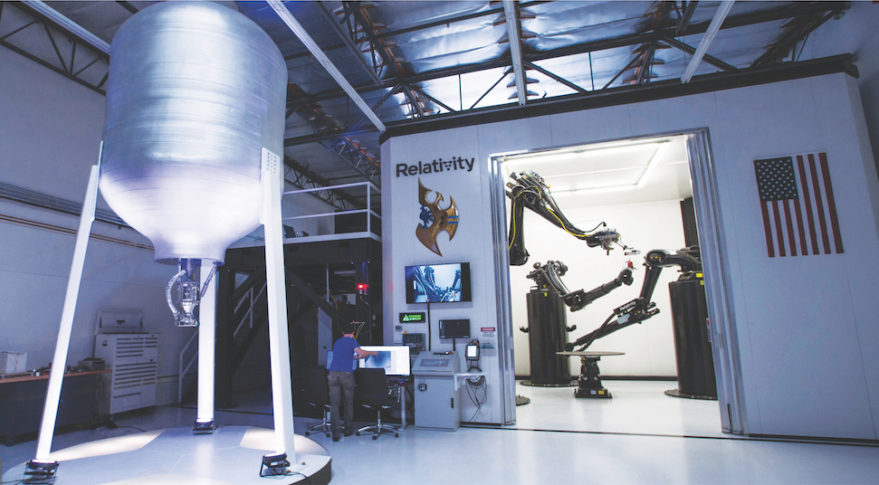Relativity Space raises $0.5 billion in Series D funding to 3D print an entire space rocket and build the largest metal 3D printers in the world

We first covered Relativity Space back in 2018 after the Los Angeles-based orbital launch startup raised $35 million in funding. A lot has changed since then. Relativity Space (Relativity) is disrupting 60 years of aerospace tradition by creating an entirely new process to build and fly rockets. Its 3-D print technology enables rockets to be built and flown in days instead of years. Its 3-D printed rocket contains 100 times fewer parts than the conventional rockets.
Relativity deploys and resupplies satellite constellations, is the first company to 3D print an entire rocket, and build the largest metal 3D printers in the world. Its new process to build and fly rockets is redefining how we access to space to connect our planet.
Today, Relativity announced it closed a $500 million Series D equity funding round to accelerate its planned initiatives, including its factory of the future, launch vehicle development, and 3D printing technologies as it builds toward humanity’s multi-planetary future.
The round, which further validates Relativity’s sector-leading momentum across commercial execution, technical milestones, and talent growth, was led by Tiger Global Management with participation from new investors Fidelity Management & Research Company LLC, Baillie Gifford, ICONIQ Capital, General Catalyst, XN, Senator Investment Group, and Elad Gil. Existing investors participating in the round include BOND, Tribe Capital, K5 Global, 3L, Playground Global, Mark Cuban, Spencer Rascoff, and Allen & Company LLC, among others.
Since founded in 2015, Relativity has built the world’s largest metal 3D printer and completed over 100 rocket engine test fires on their quest to build their own rocket constructed almost entirely of 3D printed parts, which goes beyond just cubesats. The custom-built rockets launch Earth-orbiting satellites with large payloads (i.e. a satellite the size of a small car), six times the size of its competitors’ abilities.
Relativity’s radically simplified supply chain enables the company to build its orbital rocket, Terran 1, with 100x fewer parts in less than 60 days. By fusing 3D printing, artificial intelligence, proprietary software, and autonomous robotics, Relativity’s team is creating an entirely new value chain for aerospace, starting with an orbital launch.
“This past year drove change in every industry, including aerospace. Throughout 2020, Relativity achieved unprecedented growth, attracted top talent, and stepped up to deliver results we could have only imagined when we started the company less than five years ago,” shared Tim Ellis, Relativity’s co-founder and CEO. “We are on track to launch our first Terran 1 rocket to orbit next year with existing capital on our balance sheet. With this new Series D funding, we will now dramatically accelerate the development of our long-term plans and look beyond the first launch.”
Relativity stands apart from other launchers in the space by not just employing 3D printing as a supplemental technique, but for over 95% of major components. Using machine learning in combination with their custom software, hardware, and proprietary metal alloys, Relativity has cut rocket part count from 100,000 to 1,000 and dramatically reduced labor and timelines by orders of magnitude.
Relativity’s process disrupts the entire tech stack from design algorithms, supply chain, inventory management, quality control, and the very way raw materials form themselves into complex aerospace products. It is this ingenuity that will save millions of dollars for each of Relativity’s customers at every launch.
Relativity Space is backed by leading investors including Baillie Gifford, BOND, Fidelity, General Catalyst, ICONIQ Capital, K5 Global, Mark Cuban, Playground Global, Social Capital, Tiger Global, Tribe Capital, Y Combinator, and 3L.

